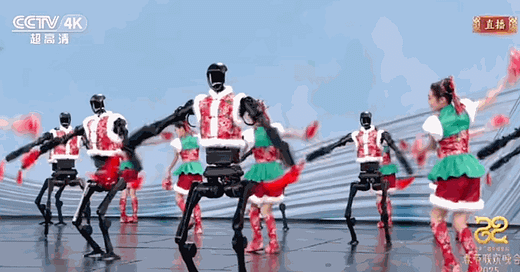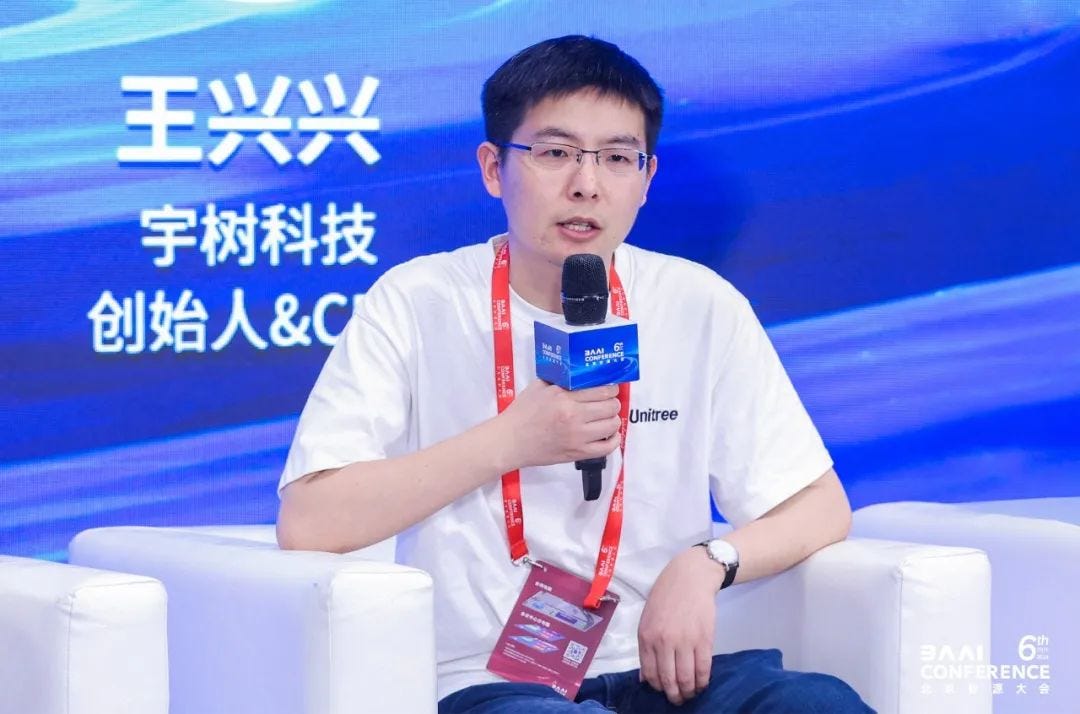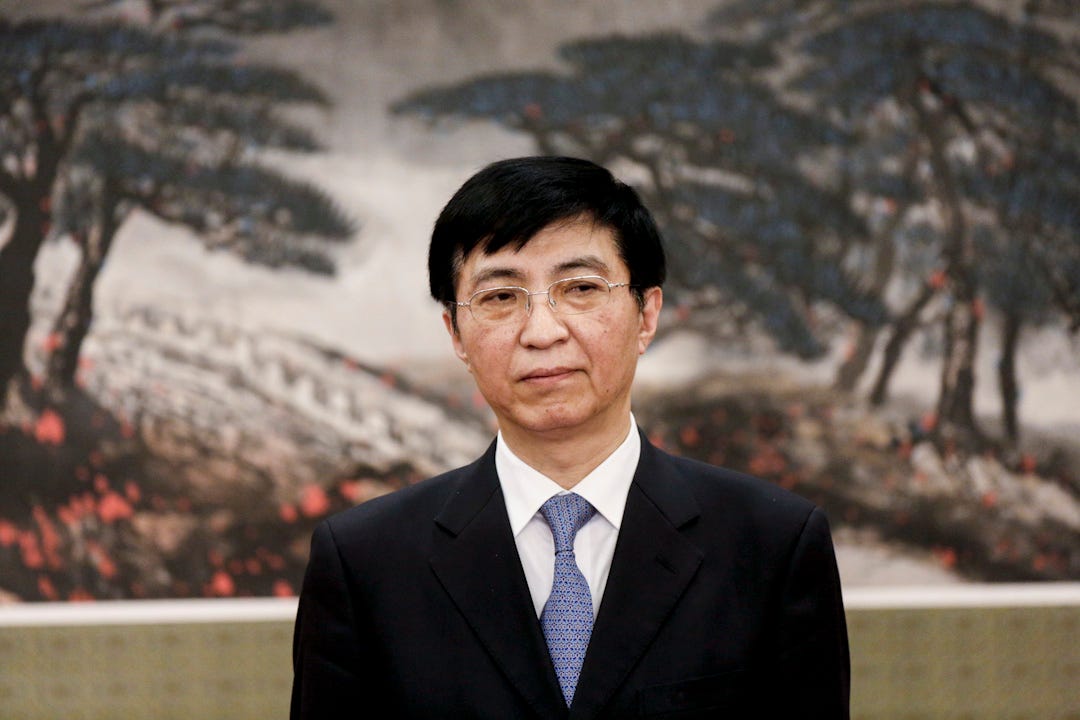
A friend and past ChinaTalk guest Walter Kerr is trying, ala Fast Grants, to step in the gap to provide funding to the most effective organizations most impacted by the USAID funding cutoff. He and some partners have launched the The Foreign Aid Bridge Fund. I donated a few grand this week and think you should too.
Walter runs Unlock Aid, new think tank that has done some great work to make USAID a more efficient and effective organization. Have a listen to him on ChinaTalk (iTunes, Spotify, YouTube).
On Monday, Xi Jinping hosted a symposium of top business leaders, signaling increased support for China’s private sector.
While concrete policy details have yet to emerge, the meeting featured plenty of strong rhetoric. Premier Li Qiang gave a markedly pro-stimulus speech, arguing, “We must make every effort to enhance consumption… and strive to open up a chain where consumption drives investment, industrial upgrading, employment, and income growth.”
The guest list had plenty of familiar figures, like Alibaba’s Jack Ma, BYD’s Wang Chunfu, and DeepSeek’s Liang Wenfeng. But to understand the implications of this stimulus soirée, we have to look at the lesser-known attendees as well — this event assembled propaganda czars, Politburo tech strategists, and neoauthoritarian academics to mingle with tycoons of semiconductors, chemicals, agriculture, 3D printing, and more.
Today, we’ll introduce some of the deeper cuts — eight from industry and four from government — to illuminate what Xi’s new alliance means for the emerging technology race.
Thanks to Ray Wang for writing the profile on Yu Renrong. All other profiles were authored by Lily Ottinger.
Industry leaders
Wang Xingxing 王兴兴 (Unitree Robotics 宇树科技)
Wang Xingxing is the founder and CEO of Unitree Robotics, which developed China’s most popular robot dog.
Wang’s eccentric personality, technological optimism, and unconventional approach to talent have prompted comparisons to DeepSeek CEO Liang Wenfeng. According to an April 2024 interview:
“I think by the end of 2025, there will be at least one company in the world that can produce a relatively general-purpose robotic large model.
…
In the future, humanoid robots could reshape every industry, including manufacturing, services, market production, agriculture, mining, and construction. Looking ahead to the ultimate possibilities, I believe that governments could fully deploy 100,000 humanoid robots, designate a piece of land, and build a brand-new city there. They could complete the infrastructure and provide housing for free. At that point, ordinary people wouldn’t even need to work — robots could sustain everyone. This is entirely possible.
…
Eventually, they might even be able to create robots the size of cells. … At that point, governments would definitely need to introduce regulations to prevent an uncontrolled explosion of robots — after all, they could end up consuming all available resources.”
Wang is also a believer in the potential of AGI, but thinks that large language models are the wrong way to get there. From a 2024 panel:
“I believe that embodied intelligence is the only path to achieving AGI. Currently, LLMs lack physical presence and thus have an insufficient understanding of the physical world. This is why many top AI researchers advocate for developing world models. Tesla's autonomous driving also relies on collecting real-world data for training rather than using virtual data, because virtual data lacks sufficient real-time interaction with the physical world. I think embodiment is actually a crucial pathway to AGI, and AGI is very likely to emerge from robotics companies.”
How does Xi’s symposium fit into this vision? According to Wang, hard-core innovation requires a skillful PR strategy. “If your technology is not innovative, it is meaningless. Of course, you cannot express this innovation directly. It is better not to go beyond the public's cognition too much, otherwise I think I would be scolded to death.” The publicity campaign goes beyond shaking hands with Xi — Unitree’s latest humanoids performed during the 2025 CCTV New Year’s Gala, which is of course the world’s most-watched television program.
For more on China and robots, see our features on industrial robotics and humanoid robots.
Xu Guanju 徐冠巨 (Transfar Group 传化)
Billionaire Xu Guanju is the founder and chairman of Transfar Group, a publicly traded conglomerate dealing in chemical manufacturing, supply chain logistics, agricultural biotechnology, and even finance.
Xu spent a decade as chairman of the Zhejiang Federation of Industry and Commerce, advising the local government on behalf of the private sector, and helping to shape the “Zhejiang model” of economic development that incubated both DeepSeek and Unitree. He also served as a member of the CPPCC (China’s top advisory body) and was elected as a deputy to the 13th National People’s Congress (NPC).
Xu famously built his chemical empire on a humble foundation. After borrowing startup funds from friends and family, Xu began producing liquid soap in a small workshop with his father in 1986. According to one well-known story, Xu initially had to contract a chemical engineer due to his lack of expertise. This contractor proved frustratingly indispensable thanks to a mysterious powdered thickening agent he added to finish each batch of soap. Eventually, Xu agreed to pay 2000 RMB (~10,000 RMB today) for access to this “trade secret,” only to learn that the powder was just ordinary table salt. Xu’s father responded to this revelation by exclaiming, “I spent all this money to send you to school, and for what?” Xu said later, “This incident made me realize that technology is the primary productive force.”
Peng Fan 彭凡 (KOCEL 共享装备)
Peng Fan is the chairman of KOCEL Group, the machinery manufacturing company that produced the hydropower turbine blades for the Three Gorges Dam.
In 1983, Peng moved to the remote northwest region of Ningxia to work at the state-owned Great Wall Foundry. He climbed the ranks from an ordinary casting technician to plant manager. The foundry underwent privatization and restructuring in 2003, with Peng leading the effort to transform it into KOCEL.
Peng has a postgraduate degree in casting engineering, and under Peng’s leadership, KOCEL embraced cutting-edge “intelligent manufacturing” techniques. He championed the adoption of industrial 3D printing, obtaining more than 500 patents related to advanced casting techniques.
Peng’s team cracked several difficult engineering problems, including the manufacture of heavy gas turbine casings and hydropower turbine blades. Under his guidance, KOCEL has grown into a leading global supplier of high-end equipment components.
He also served as a delegate to the National Congress of the CCP in 2012 and 2017.
Jiang Bin 姜滨 (Goertek 歌尔股份)
Jiang Bin is the chairman of Goertek, a company he co-founded with his wife, Hu Shuangmei 胡双美, in 2001. Goertek is one of the primary manufacturers of Apple’s AirPods and Vision Pro headsets.
Jiang Bin was born in 1966 in Shandong province. He earned a bachelor’s degree in engineering from the Beijing University of Aeronautics and Astronautics and later an MBA from Tsinghua University.
With Jiang as chairman, Goertek grew from a small acoustics firm into a global supplier of microphones, speakers, sensors, and other hardware. The company has filed more than 29,000 patent applications and is now the world’s top supplier of micro speakers, MEMS acoustic sensors, and AR/VR headset components.
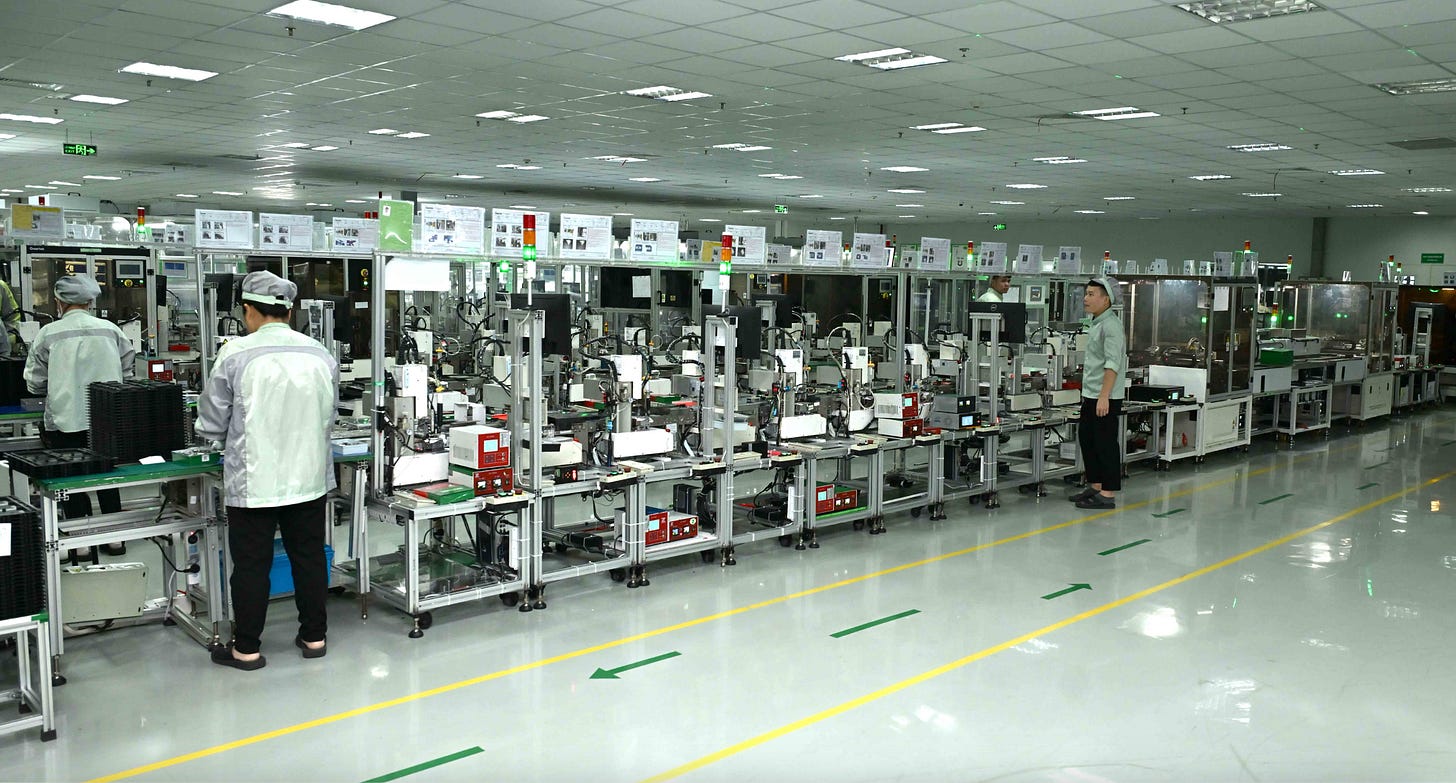
Apart from Apple, Goertek’s clients include Meta, Amazon, Google, Samsung, and Sony — and in turn, the company has been criticized for relying too much on the patronage of these foreign tech giants. In 2024, the company announced an investment of US$280 million to build new production capacity in Vietnam.
Jiang is currently serving as a deputy to the 14th NPC and regularly participates in government-organized industry forums. He frequently uses these platforms to promote metaverse technology. Jiang’s current net worth is reportedly more than US$5 billion.
Yu Renrong 虞仁荣 (Will Semiconductor 韦尔半导体)
Yu Renrong (虞仁荣) is the founder and chairman of Will Semiconductor, one of the top 10 fabless chip companies in the world. It is also one of the largest global image sensor providers, ranking only behind Sony and Samsung.
Yu grew up in a small town in Ningbo, Zhejiang, but his humble background did not prevent him from demonstrating his brilliance. His academic abilities brought him to one of the best high schools in his hometown, and he graduated with an Electonic Engineering degree (known at the time as the Department of Radio 无线电系) from Tsinghua University.
After gaining engineering experience at Chinese IT pioneer Inspur and sales experience at Yuelong Electronic Technology, he founded his first company (Beijing Huaqing Xingchang Technology and Trade) in 2006.
He then founded Will Semiconductor in 2007, which both designs advanced semiconductors and sells electronic components. After its listing in 2017, Will Semiconductor rapidly expanded through acquisitions, including of OmniVision Technologies, CelePixel, Cerebrex, and Synaptics’s Asian Touch and Display Driver Integration business.
Today, Will Semiconductor's market value is reportedly more than US$27 billion. Yu is also recognized as China's richest chip tycoon (中国芯片首富), with a personal net worth of $6.4 billion in 2024.
Qi Xiangdong 齐向东 (Qi-Anxin 奇安信)
Qi Xiangdong is the founder of Qi-Anxin Technology Group (奇安信科技集团), which provides cybersecurity services to government agencies, commercial actors, and critical infrastructure facilities.
After serving as Vice President of Yahoo China from 2003 to 2005, Qi co-founded the consumer antivirus software company Qihoo 360 (奇虎360), which was added to the BIS entity list in 2020.
Qi is deeply integrated into China’s cybersecurity establishment, and he’s currently a member of the 14th National Committee of CPPCC and Vice Chairman of the ACFIC. He is also a vocal supporter of AI safety regulations, frequently expressing concerns about AI-enabled hacking, deepfakes, and the black box problem.
Leng Youbin 冷友斌 (Feihe Dairy 飞鹤乳业)
Leng Youbin is the CEO of Feihe (literally, “Flying Crane”), China’s leading infant formula and dairy company. He transformed Feihe into a top domestic competitor in a market once dominated by foreign brands.
Under Leng’s leadership, Feihe worked to cultivate trust among Chinese consumers in the wake of the 2008 milk scandal, investing in high-quality milk source bases and product R&D. Feihe has also implemented agricultural IOT practices, including collars that monitor the vital signs of dairy cows for early disease detection.
Just like how the CEO of Chobani served on the Homeland Security Advisory Council in the US during the Biden administration, Leng served as a deputy to the 13th NPC and as the vice-chairman of the All-China Federation of Industry and Commerce (ACFIC).
Liu Yonghao 刘永好 (New Hope 新希望)
Liu Yonghao 刘永好 is the founder and chairman of New Hope Group, one of China’s largest agricultural companies. New Hope manufactures livestock and aquaculture feed, farms and processes meat and dairy products, and even dabbles in finance and real estate.
Born in 1952, Liu began his career as a teacher. In 1982, he started a poultry breeding operation in rural Sichuan with his brothers. By 1992, their company was among the largest non-governmental conglomerates in China. Today, Liu’s net worth is more than US$6 billion.
Under Liu’s leadership, New Hope expanded from animal feed into a broad agrifood empire. He also co-founded China Minsheng Bank in 1996, one of China’s first private banks, and served as its vice-chairman.
Liu’s political activities include serving as a committee member of the CPPCC, a deputy to the 12th NPC, and vice-chairman of the ACFIC. In the past, he’s publicly spoken out against Xi’s detentions of businesspeople.
Government Officials
Shi Taifeng 石泰峰 (PB Member, United Front Work Chief)
Shi Taifeng is a CCP Politburo member and the head of the Party’s United Front Work Department (UFWD), an organization tasked with monitoring and influencing elite groups outside the Party, including businesspeople, academics, ethnic minority leaders, and the overseas Chinese diaspora — which made him a natural choice to receive an invitation.
A trained legal scholar with a Master of Laws from Peking University, Shi spent part of his career as a professor at the Central Party School. Before rising to national prominence, he held key regional posts – including governor of Jiangsu province and Party Secretary of first Ningxia province (2017–2019) and then Inner Mongolia (2019–2022).
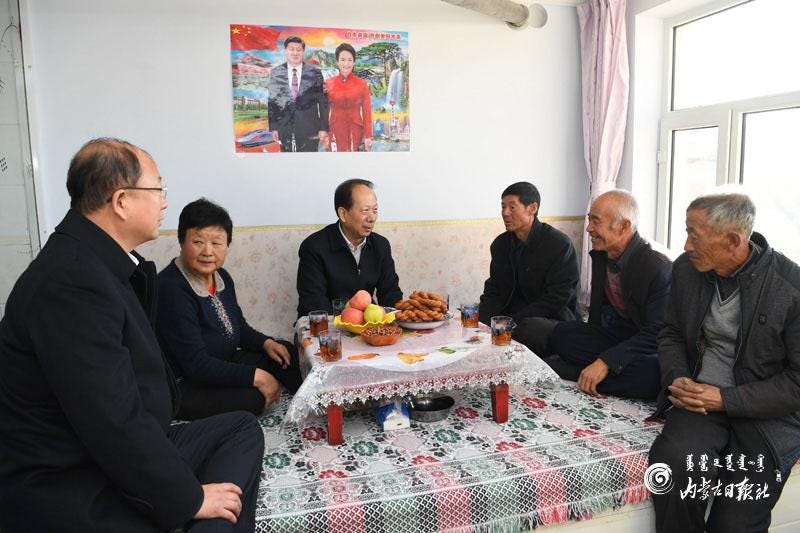
In Inner Mongolia, Shi oversaw a massive buildout of data centers, 5G infrastructure, and renewable energy as part of a broader strategy of anti-separatist digital governance in the region. His tenure also saw intense crackdowns on the rights of ethnic minorities and an expansion of AI-enabled censorship. In August 2020, for example, the provincial government announced a plan to force Inner Mongolian schools to teach certain subjects in Mandarin (the goal was to transition to an exclusively Mandarin curriculum by 2023, although that was publicly denied at the time). Authorities responded to complaints by blocking China’s only Mongolian-language social media platform, Bainu, and tracking down protesters.
As Ningxia Party Secretary, Shi launched an “innovation-driven strategy” of economic development and warned that not innovating is “a dead end.”
Wang Huning 王沪宁 (PBSC Member, CPPCC Chair)
Wang Huning is a top leader sitting on the CCP’s 7-member Politburo Standing Committee and currently serves as Chairman of the CPPCC. We did a podcast on Wang with Chang Che, who wrote a great profile of him a few years back (iTunes, Spotify, YouTube).
Wang made his name as a scholar and theorist rather than a regional administrator. He was a professor of international politics at Shanghai’s Fudan University, where he was a well-known advocate of “neoauthoritarianism” (新权威主义) and authored widely read books including Analysis of Comparative Politics, Analysis of Contemporary Western Politics (1988), and America Against America. His undergraduate degree is in French.
Over the past three decades, Wang has been the de facto chief ideologue for three consecutive Chinese presidents — Jiang Zemin, Hu Jintao, and now Xi Jinping. He’s credited with formulating key political concepts like Jiang’s “Three Represents,” Hu’s “Scientific Outlook on Development,” and Xi’s “Chinese Dream” as well as “Chinese-style modernization.” He is the Party’s top ideological craftsman, “using cosmetics to dress up political policies” with unprecedented longevity across administrations.
Wang is an active proponent of AI development, which he of course frames in ideological terms. His presence at the event signals that private sector innovation will be valued as a key component of grand strategy and national power.
Ding Xuexiang 丁薛祥 (PBSC Member, 1st-Ranked Vice Premier)
Ding Xuexiang is a member of the Politburo Standing Committee and the first-ranked Vice Premier in China’s State Council. He’s also one of Xi Jinping’s closest confidants.
Unlike many Chinese politicians, Ding has a technical education. He studied engineering and worked as a materials science researcher and administrator in Shanghai’s science bureaucracy for years. He is the only trained engineer on the current Standing Committee. His role at the event was to make the tech entrepreneurs feel less out of place.
Ding is also the director of the Central Science and Technology Commission (CSTC), a high-level CCP body unveiled in 2023 and tasked with coordinating China’s national science and tech strategy. His contributions have thus far been organizational — setting up and leading the new governance structures for innovation and mobilizing resources across government, academia, and industry.
Here’s Ding’s take on AI regulation:
Ding Xuexiang said that emerging technologies such as artificial intelligence can be a powerful driving force for development, but they can also be a source of risk…. We will not blindly follow the trend, nor will we participate in unrestrained international competition. China has a strong governance and regulatory system and institutional measures, and we are confident that we can manage and use artificial intelligence technology well.
Ding Xuexiang said that global governance of artificial intelligence is a global problem. If countries are allowed to compete in an unorderly manner, the “gray rhino 灰犀牛” is right in front of us. Historically, the United Nations has played a good role in controlling nuclear safety and biosafety, and its successful experience is worth learning. The United Nations should be supported to play a central role, and all countries should participate together to jointly study and formulate powerful and effective rules to ensure that new technologies such as artificial intelligence become “Ali Baba’s Cave” of treasures, rather than “Pandora's Box.”
Li Shulei 李书磊 (PB Member, Propaganda Chief)
Li Shulei is a Politburo member and the head of the Party’s Central Propaganda Department. Hi has described modernization as a Western imposition that has now become a necessity for national power.
Li was a child prodigy, entering Peking University at age 14 and later earning a doctorate in modern Chinese literature. He spent many years as a professor at the Central Party School, writing on Chinese literature and culture before serving as propaganda chief of Fujian province. In 2022, Xi Jinping tapped him to take over the top propaganda post.
In 2023, Li’s Propaganda Department (along with the Cyberspace Administration) issued guidelines to ensure AI-generated content aligns with socialist values and does not undermine social stability. In his words:
“Generative artificial intelligence is one of the most revolutionary and leading scientific and technological technologies at present. We must improve the development and management mechanism of generative artificial intelligence as soon as possible, promote industrial development, technological progress and security in this important field, and achieve benefits and avoid harm and safe use. Cyberspace is not a lawless place or an enclave of public opinion. We must strengthen the construction of the rule of law in cyberspace, improve the long-term mechanism for network ecological governance, and ensure that the Internet always operates healthily on the track of the rule of law.”
As the propaganda czar, Li was invited to the meeting because events like these are more about messaging than substance. Going forward, a key indicator of the meeting’s impact will be whether Li’s propaganda continues to discuss technology in terms of control or instead pivots to emphasizing the economic benefits of tech innovation.

